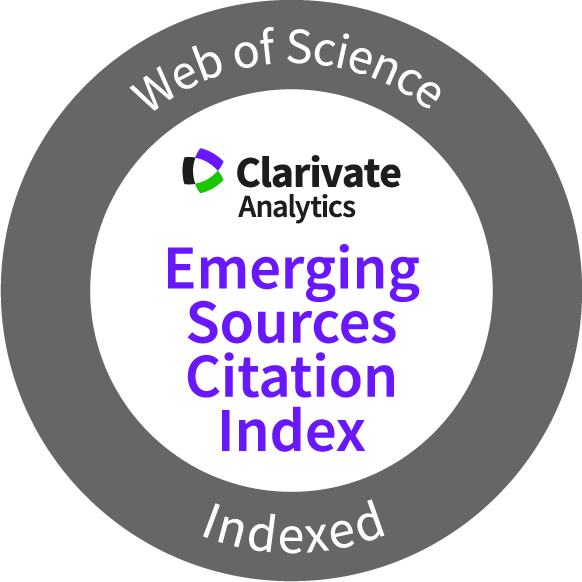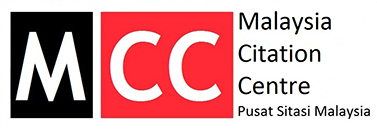The Uses of Rhizoctonia Mycorrhizae As a Dry Resistance Induction of Dendrobium aggregatum Seedlings
Keywords:
Rhizoctonia mycorrhizae, water stress, D. agregatum seedling, Dendrobium agregatum seedling, Dendrobium lasianteraAbstract
Orchids are cultivated by tissue culture because their seeds do not have food reserves (endosperm) for their growth. All nutrient requirements are obtained from tissue culture media. Propagation by tissue culture causes them to have no association with Rhizoctonia mycorrhizae, which are needed in their growth so that they can interfere with orchid growth both vegetatively and generatively. Rhizoctonia mycorrhizae are a group of Rhizoctonia sp. which form a mutual symbiotic association with orchids. Each orchid has a different association with Rhizoctonia mycorrhizae. At the time of association with orchids, Rhizoctonia mycorrhizae will form a peloton structure in the orchid root cortex, which supplies several nutrients needed by orchids from their environment during drought. Rhizoctonia mycorrhizae inoculation has been carried out on orchid seedlings of the same species orchids in vitro. However, Rhizoctonia mycorrhizae inoculation has never been carried out on seedlings of different species of orchid using a simpler spraying method. The success of simpler Rhizoctonia mycorrhizae inoculation on Dendrobium aggregatum seedlings might provide an understanding of the increased resistance of orchids to water stress. The materials used were isolates of Rhizoctonia mycorrhizae isolated from the roots of Dendrobium lasiantera and seedlings of Dendrobium aggregatum aged 6 months. The seedlings consisted of two groups. The former included seedlings exposed to Rhizoctonia mycorrhizae (M1) and watering with the intervals of 1, 2, and 3 days and those treated without Rhizoctonia mycorrhizae (M0) but with watering at the same intervals. The experiment used RCBD with 14 replications. Meanwhile, the control group was not exposed to both Rhizoctonia mycorrhizae and watering. The results showed that Rhizoctonia mycorrhizae inoculation had a significant effect on seedling height, leaf length, number of roots, and fresh weight of seedlings. Meanwhile, the watering interval did not give a real effect.
Downloads
Metrics
References
Ábrahám, E., Hourton-Cabassa, C., Erdei, L. & Szabados, L. 2010. Methods for determination of proline in plants. In: Plant Stress Tolerance. R. Sunkar (Eds.). pp. 317-331. Springer. DOI: https://doi.org/10.1007/978-1-60761-702-0_20
Ajayi-Oyetunde, O.O. & Bradley, C.A. 2018. Rhizoctonia solani: Taxonomy, population biology and management of Rhizoctonia seedling disease of soybean. Plant Pathology, 67(1): 3-17. DOI: https://doi.org/10.1111/ppa.12733
Basu, A., Chowdhury, S., Ray Chaudhuri, T. & Kundu, S. 2016. Differential behaviour of sheath blight pathogen Rhizoctonia solani in tolerant and susceptible rice varieties before and during infection. Plant Pathology, 65(8): 1333-1346. DOI: https://doi.org/10.1111/ppa.12502
Cardoso, E.J.B.N., Nogueira, M.A. & Zangaro, W. 2017. Importance of mycorrhizae in tropical soils. In: Diversity and Benefits of Microorganisms from the Tropics. J.L. de Azevedo & M.C. Quecine (Eds.). Springer. pp. 245-267. DOI: https://doi.org/10.1007/978-3-319-55804-2_11
Badan Pusat Statistik. 2019. Statistik Indonesia 2019. Badan Pusat Statistik.
Kumar, S. & Chaurasia, P. 2016. Mycorrhizal diversity: Methods and constraints? Indian Journal of Science and Technology, 9(37): 1-9. DOI: https://doi.org/10.17485/ijst/2016/v9i37/87422
Li’atul Mufidah, A., Syauqi, A., Rahayu, T., Biologi, J., Matematika, F., Ilmu, D. & Alam, P. 2017. Karakteristik mikoriza anggrek Dendrobium sp. dan Spathoglottis sp. pada media PDA dengan perbedaan pH. Jurnal Ilmiah BIOSAINTROPIS, 3(2): 51-57.
Muzhinji, N., Truter, M., Woodhall, J.W. & Waals, J.E.V. 2015. Anastomosis groups and pathogenicity of Rhizoctonia solani and binucleate Rhizoctonia from potato in South Africa. Plant Disease, 99(12): 1790-1802. DOI: https://doi.org/10.1094/PDIS-02-15-0236-RE
Ningsih, R., Ambardini, S. & Denofia. 2014. Peranan jamur Rhizoctonia sp. asal Taman Nasional Rawa Aopa Watumohai Sulawesi Tenggara terhadap keberhasilan aklimatisasi dan laju pertumbuhan planlet anggrek Macan (Grammatophyllum scriptum BL.). Al-Kauniyah, 7(2): 58-68.
Lisar, S.Y.S., Motafakkerazad, R., Hossain, M.M. & Rahman, I.M.M. 2012. Water stress in plants: Causes, effects and responses. In: Water Stress. I.M.M. Rahman & H. Hasegawa (Eds.). IntechOpen.
Soelistijono, R. 2015. Kajian efektifitas Rhizoctonia sp. mikoriza dataran rendah dan sedang pada tingkat keparahan penyakit (DSI) anggrek Phalaenopsis amabilis terhadap Fusarium sp. Biosaintifika: Journal of Biology & Biology Education, 7(2): 112-119.
Soelistijono, R., Priyatmojo, A., Semiarti, E., & Sumardiyono, C. 2011. Characterization of pathogenic Rhizoctonia sp. and mycorrhizal Rhizoctonia isolates on terrestrial orchid plant Spathoglottis plicata. Biota, 16(2): 371-380. DOI: https://doi.org/10.24002/biota.v16i2.121
Soelistijono, R., Utami, D.S., Daryanti, Faizin, M. & Dian, R. 2020. Short communication: Characterization of Rhizoctonia-like mycorrhizae associated with five Dendrobium species in Java, Indonesia. Biodiversitas, 21(3): 1007-1011. DOI: https://doi.org/10.13057/biodiv/d210321
Suryantini, R., Priyatmojo, A., Widyastuti, S.M. & Kasiamdari, R.S. 2011. Characteristic of Rhizoctonia spp. from Pine (Tusam Merkusii Jungh. Et De Vriese) Forest Soil. Jurnal Budidaya Pertanian, 7(1): 8-13.
Suryantini, R., Suci Wulandari, R. & Sri Kasiamdari, A. 2015. Orchid mycorrhizae fungi: Identification of Rhizoctonia in West Kalimantan. Microbiology Indonesia, 9(4): 157-162. DOI: https://doi.org/10.5454/mi.9.4.3
Verbruggen, N. & Hermans, C. 2008. Proline accumulation in plants: A review. Amino Acids, 35: 753-759. DOI: https://doi.org/10.1007/s00726-008-0061-6
Webb, K.M., Hill, A.L., Laufman, J., Hanson, L.E. & Panella, L. 2011. Long‐term preservation of a collection of Rhizoctonia solani using cryogenic storage. Annals of Applied Biology, 158(3): 297-304. DOI: https://doi.org/10.1111/j.1744-7348.2011.00464.x
Wu, J., Ma, H., Lü, M., Han, S., Zhu, Y., Jin, H., Liang, J., Liu, L. & Xu, J. 2010. Rhizoctonia fungi enhance the growth of the endangered orchid Cymbidium goeringii. Botany, 88(1): 20-29. DOI: https://doi.org/10.1139/B09-092
Zumri, M., Daryani & Soelistijono, R. 2017. Isolasi dan identifikasi Rhizoctonia mikoriza anggrek Vanda tricolor dari Kopeng Jawa Tengah. Agrineca, 17(I): 1-8.
Published
How to Cite
Issue
Section
Any reproduction of figures, tables and illustrations must obtain written permission from the Chief Editor (wicki@ukm.edu.my). No part of the journal may be reproduced without the editor’s permission





















